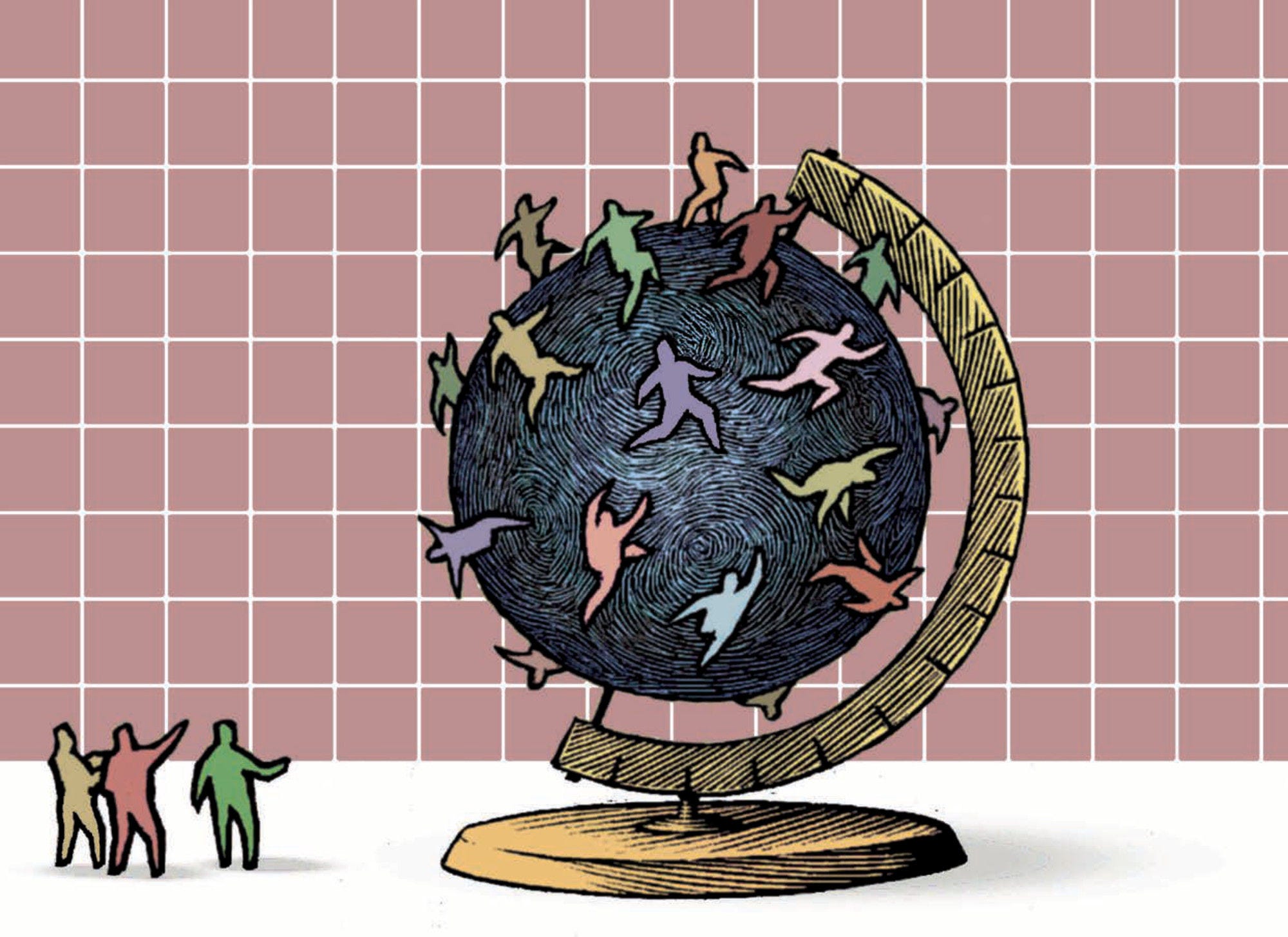In 2017, 4 400 new immigrants obtained a residence permit longer than 12 months in Latvia (excluding EU citizens), triple the figure for 2016. This figure comprises 36.5% labour migrants, 26.7% family members (including accompanying family), 24.3% who came for educational reasons and 12.5% other migrants.
Around 500 short-term permits were issued to international students and 600 to temporary and seasonal labour migrants (excluding intra-EU migration). In addition, 1 400 intra-EU postings were recorded in 2017, an increase of 25.6% compared to 2016. These posted workers are generally on short-term contracts.
Russia, Ukraine and India were the top three nationalities of newcomers in 2017. Among the top 15 countries of origin, India registered the strongest increase (600) and Russia the largest decrease (‑400) in flows to Latvia compared to the previous year.
In 2018, the number of first asylum applicants decreased by 50.7%, falling to around 200. The largest groups of applicants come from Russia (50), Iraq (20) and Azerbaijan (15). The largest increase since 2017 concerned Russian nationals (25) and the largest decrease Syrian (‑100). Of the 100 decisions taken in 2018, 24% were positive.
Emigration of Latvians to OECD countries increased by 13.7% to 15 000. Approximately 48.7% of this group migrated to Germany, 8.0% to the Netherlands and 5.8% to Estonia.
An action plan for persons in need of international protection, which came into force at the end of 2015, was reviewed in a report and approved by the Cabinet in November 2017. The report called for greater efforts to provide accommodation for this population and also for better cooperation between various stakeholders, including public authorities and non-governmental organisations. The report proposed designating one public authority as coordinating body that would monitor the situation on an ongoing basis and address problems as they arose. In 2018, a guide for asylum seekers in Latvia was issued in ten languages.
Efforts continue to explore the potential for reconnecting with Latvian emigrants. The Ministry of Foreign Affairs surveyed 350 scientists with Latvian origins. The “Latvian Scientists in the World: Cooperation networks and opportunities” survey found that two-thirds of emigrated scientists were strongly interested in co‑operating with scientists in Latvia. A fourth World Congress of Latvian Scientists was held in Riga in June 2018.
A pilot project launched by the Ministry of Environmental Protection and Regional Development in 2018 employed five regional “remigration coordinators” to provide consultations for Latvian nationals living abroad. During the first eight months of the project, coordinators contacted about 1 300 Latvian emigrant families, 10% of which returned to Latvia. Coordinators inform Latvian emigrants about changing living conditions and opportunities in Latvia; under this initiative, returning emigrants are also eligible for financial support, of up to EUR 9 000, to start businesses.
In February 2018, in the face of labour shortages, the Cabinet of Ministers published a list of occupations which would be subject to facilitated recruitment of non-EEA nationals. The shortage list of 237 occupations allows issuance of an EU Blue Card at a lower salary threshold (1.2 times the average annual salary, rather than 1.5). Applicants not meeting EU Blue Card criteria can be hired after a 10-day labour market test, rather than one month.
In July 2018, amendments to the Immigration Law were adopted. These transposed EU Directive 2016/801 on students and researchers into Latvian legislation, defining a student in Immigration Law and extending the post-graduation job-search permit from six to nine months, although without work rights. Other amendments went beyond transposition. Master’s or doctoral students now have unrestricted access to the labour market, while all other students may work up to 40 hours per week during study holidays, in addition to 20 hours during the term. Student permits are issued, including for four months’ stay after the end of the study period, so that those who decide to stay and work in Latvia can complete necessary formalities for the next residence permit.
The Immigration Law also introduces grounds for refusing issuance or renewal of a student permit, these being: absence of progress in studies; prior expulsion for poor performance; dropping out twice; or taking longer than normal to finish a study programme (one year extra for programmes of up to three years and two years extra for programmes over three years).
For further information:
www.pmlp.gov.lv
www.csb.gov.lv
www.emn.lv
